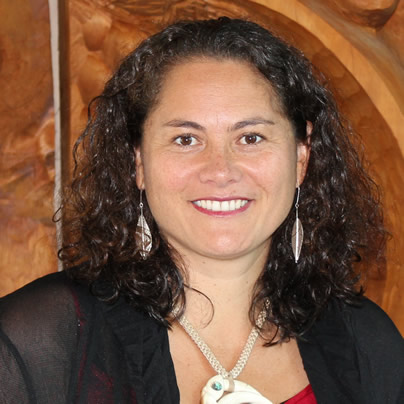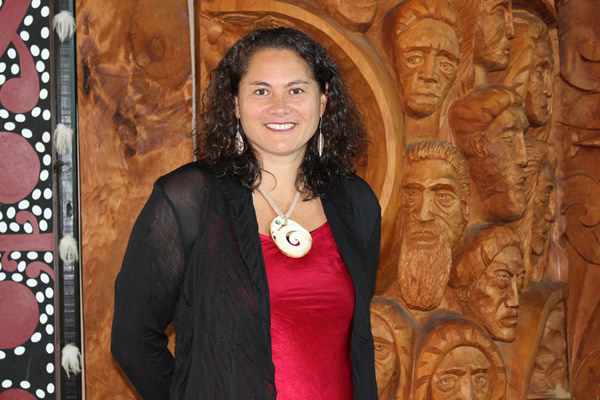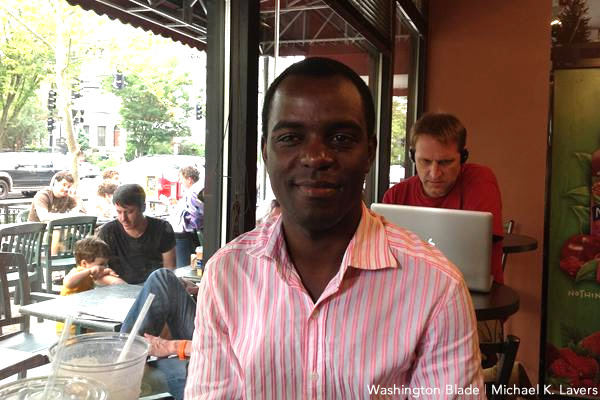News
Gay advocates outside U.S. applaud Supreme Court rulings
Activists say decisions send message to their country’s lawmakers

LGBT rights advocates around the world joined their American counterparts in celebrating the U.S. Supreme Court rulings that found a portion of the Defense of Marriage Act unconstitutional and struck down California’s Proposition 8.
“This is a fantastic outcome from the U.S. Supreme Court,” Kieran Rose, chair of the Gay and Lesbian Equality Network, an Irish LGBT rights group, said. “The ruling is a pivotal moment in the achievement of equality for lesbian and gay people in the U.S. and the decision will echo across the world.”
A commission charged with reforming the Irish constitution in April overwhelmingly approved a recommendation to extend marriage rights to same-sex couples. Deputy Prime Minister Eamon Gilmore last Friday said a referendum on the issue will take place in 2014.
The British House of Lords continues to debate a proposal that would extend marriage rights to same-sex couples in England and Wales.
Andy Wasley, spokesperson for Stonewall, an LGBT advocacy group in the U.K., told the Washington Blade on Thursday his organization hopes “we’ll be celebrating too within the next few weeks.”
“It’s heartening to see a more enlightened attitude towards the rights of 19 million lesbian, gay and bisexual Americans from the Supreme Court,” he said. “We’re delighted for those in California who can now dust off their wedding plans and look forward to their special day.”
Alex Alí Méndez Díaz, a lawyer who represented three same-sex couples in the Mexican state of Oaxaca whom local authorities denied marriage licenses in 2011 and 2012, agreed.
The Mexican Supreme Court in February released its ruling that found the Oaxacan law against same-sex marriage unconstitutional.
The three couples whom Méndez represented who petitioned the Mexican judicial system to ensure local authorities would protect their constitutional rights exchanged vows shortly after the country’s highest court announced its decision. Chihuahua and Baja California del Norte that includes the city of Tijuana are among the five other Mexican states in which same-sex marriage efforts are also underway.
“The decision from the (U.S. Supreme) Court is great news,” Méndez told the Blade. “Without a doubt it represents an advance and at the same time it is the realization of the international trend for equality and not to discriminate against the LGBTTTIQ community.”
Canada, Argentina, Iceland, France, Spain, Portugal, Belgium, the Netherlands, Norway, Denmark, Sweden and South Africa currently allow same-sex marriage.
Gays and lesbians will be able to tie the knot in Uruguay and New Zealand in August.
Brazil’s National Council of Justice last month said registrars cannot deny marriage licenses to same-sex couples. Gays and lesbians in neighboring Colombia last Thursday began to apply for civil marriage licenses, even though it remains unclear whether a 2011 ruling from the country’s highest court allows registrars and judges to issue them.
Louisa Wall, the New Zealand parliamentarian who introduced her country’s same-sex marriage bill that received final approval in April, told the Blade she is “incredibly proud” of LGBT rights advocates in the U.S. for “their persistent, progressive and inclusive pursuit of equality under the law.”
“I am also buoyed by the reaction to the decision by President Obama and his directive to officials to identify laws that this decision is relevant to and to expeditiously implement the necessary changes to guarantee legal equality for all couples,” Wall added.
Rodney Croome, national director of Australian Marriage Equality, said the Supreme Court decisions “sends a powerful message” to his country’s lawmakers on the issue.
“The U.S. Supreme Court’s decision sends a direct message to Australian politicians that our law against same-sex marriage violates basic principles of equality and fair treatment must be removed,” he said.
LGBT rights advocates in other countries in which same-sex couples cannot legally marry echoed Croome.
Three gay Chilean couples who had been denied marriage licenses last September filed a lawsuit with the Inter-American Court of Human Rights after the South American country’s Supreme Court ruled against them.
The Movement for Homosexual Integration and Liberation (Movilh,) a Chilean LGBT advocacy group, said in a statement on Wednesday the Supreme Court decisions “changed the political and cultural context in relation to same-sex marriage.” The organization added it feels the Inter-American Court of Human Rights will certainly take these changes into account when it considers the case of the three gay Chilean couples.
“The signal given today by the U.S. Supreme Court is that the days of homophobic laws like DOMA are numbered,” Movilh said. “This is a process that nobody can stop.”
Frank Mugisha, a Ugandan LGBT rights advocate, also welcomed the rulings.
He and other activists in Uganda and around the world have criticized the country’s lawmakers for supporting the so-called “Kill the Gays” bill that would impose the death penalty upon anyone convicted of repeated same-sex sexual acts.
Mugisha, whom then-Secretary of State Hillary Clinton honored last summer at the U.S. Embassy in Kampala, the Ugandan capital, said he feels the Supreme Court decisions “weakens the extreme religious conservatives” whom he categorized as exporting “hate to Africa and Uganda.”
“I celebrate every step towards equality, especially in the United States,” Mugisha told the Blade hours after President Obama applauded the rulings and responded to a question about the criminalization of homosexuality in Senegal during a press conference in the Senegalese capital with the country’s president. “Although our fight in Uganda is at the first step and not about marriage equality, due to the global village, equality for same-sex couples in the United States in certain ways adulterates homophobia in Uganda as Ugandans get used to gay people being normal globally.”
Spain
Spanish women detail abuses suffered in Franco-era institutions
Barcelona-based photographer Luca Gaetano Pira created ‘Las Descarriadas’ exhibit

A Barcelona-based photographer, audiovisual artist, and activist has created an exhibit that profiles Spanish women who suffered abuse in institutions that Gen. Francisco Franco’s dictatorship established.
Luca Gaetano Pira, who is originally from Italy, spoke with women who the regime, which governed Spain from 1936-1975, sent to Women’s Protection Board institutions.
The regime in 1941 created the board the country’s Justice Ministry oversaw.
Franco named his wife, Carmen Polo, as the board’s honorary president. Then-Prime Minister Felipe González fully dissolved the board in 1985, a decade after Franco’s death.
Gaetano’s exhibit is called “Las Descarriadas” or “The Misguided Women” in English.
“These are women who were detained between 1941 and 1985 for reasons that are unthinkable today: being lesbian, poor, pregnant out of wedlock, rebellious, politically active … or simply considered ‘morally suspect,'” Gaetano noted to the Washington Blade.
Groups affiliated with the Spanish Catholic Church ran these institutions. Gaetano pointed out they were “presented as social assistance centers.”
“In reality, they were spaces of punishment and forced reeducation, where isolation, unpaid work, and psychological violence were the norm,” he said. “Many of the survivors are still alive. Their testimonies are powerful, urgent, and of extraordinary current relevance.”
The regime sent more than 40,000 women to Women’s Protection Board institutions.
“Despite its seemingly benevolent name, it was in fact one of the most powerful instruments of moral and social control over women during and after the dictatorship,” notes the exhibit. “Under the guise of care and re-education, this institution functioned as a repressive apparatus that punished women who deviated from the ideal feminine model imposed by Franco’s regime: submissive, obedient, married, and dedicated to motherhood within the Catholic family structure.”
The Spanish Catholic Church last month issued a public apology, but Gaetano described it as “very soft” and noted “the women did not accept it.” Gaetano also compared the Women’s Protection Board institutions to Ireland’s Magdalene Laundries.
The Associated Press notes tens of thousands of “fallen” women were sent to the laundries that Catholic nuns operated in Ireland from the 18th century until the mid-1990s. Then-Irish Prime Minister Edna Kenny in 2013 issued a formal apology for the abuses that women suffered in the laundries and announced the government would compensate them.
The Spanish government has yet to offer compensation to the women abused in Women’s Protection Board institutions.
“My work focuses on recovering the historical memory of marginalized communities, particularly through the portrayal of survivors of institutional violence and the use of archival materials,” Gaetano told the Blade, noting he has also sought to highlight the repression that LGBTQ people suffered during dictatorships in Portugal and Latin America.
Gaetano’s exhibit can be found here:
District of Columbia
Gay GOP group hosts Ernst, 3 House members — all of whom oppose Equality Act
Log Cabin, congressional guest speakers mum on June 25 event

U.S. Sen. Joni Ernst (R-Iowa) and three women Republican members of the U.S. House appeared as guest speakers at the June 25 meeting of Log Cabin Republicans of D.C., the local chapter of the national LGBTQ Republican group with that same name.
The U.S. House members who joined Ernst as guest speakers at the Log Cabin meeting were Celeste Maloy (R-Utah), Kat Cammack (R-Fla.), and Julia Letlow (R-La.).
Neither D.C. Log Cabin Republicans President Andrew Minik nor spokespersons for Ernst or the three congresswomen immediately responded to a request by the Washington Blade for comment on the GOP lawmakers’ appearance at an LGBTQ GOP group’s meeting.
“Please join us for an inspiring evening as we celebrate and recognize the bold leadership and accomplishments of Republican women in Congress,” a D.C Log Cabin announcement sent to its members states.
“This month’s meeting will highlight the efforts of the Republican Women’s Caucus and explore key issues such as the Protection of Women and Girls In Sports Act and the broader fight to preserve women’s spaces in society,” the message says.
It was referring to legislation pending in Congress calling for banning transgender women from participating in women’s sports events.
According to media reports, Ernst and the three congresswomen have expressed opposition to the Equality Act, the longstanding bill pending in Congress calling for prohibiting discrimination based on sexual orientation and gender identity in the areas of employment, housing, and public accommodations.
The Log Cabin announcement says the meeting was scheduled to take place at the Royal Sands Social Club, which is a restaurant and bar at 26 N St., S.E. in the city’s Navy Yard area.
D.C. Log Cabin member Stuart West, who attended the meeting, confirmed that Ernst and the three congresswomen showed up and spoke at the event.
“It was a good turnout,” he said. “I would definitely say probably 30 or 40 people attended.” West added, “Four women came to talk to a group of mostly gay men. That’s something you don’t see very often.”
District of Columbia
D.C. police seek public’s help in July 5 murder of trans woman
Relative disputes initial decision not to list case as hate crime

D.C. police are seeking help from the public in their investigation into the murder of a transgender woman who they say was shot to death at about 12:30 a.m. on Saturday, July 5, on the 2000 block of Benning Road, N.E.
But the police announcement of the fatal shooting and a police report obtained by the Washington Blade do not identify the victim, 28-year-old Daquane ‘Dream’ Johnson of Northeast D.C., as transgender. And the police report says the shooting is not currently listed as a suspected hate crime.
It was local transgender activists and one of Johnson’s family members, her aunt, who confirmed she was transgender and said information they obtained indicates the killing could have been a hate crime.
“On Saturday, July 5, at approximately 12:51 a.m., Sixth District officers were flagged down in the 2000 block of Benning Road, Northeast, for an unconscious female,” a July 5 D.C. police statement says. “Upon arrival, officers located an adult female victim suffering from gunshot wounds,” it says.
“D.C. Fire and EMS responded to the scene and transported the victim to a local hospital where after all lifesaving efforts failed and the victim was pronounced dead,” the statement says.
A separate police flyer with a photo of Johnson announces an award of $25,000 was being offered for information leading to the arrest and conviction of the person or persons responsible for the murder.
The flyer identifies D.C. police Homicide Detective Natasha Kennedy as being the lead investigator in the case and says anyone with information about the case should contact her at 202-380-6198.
Longtime D.C. transgender rights advocate Earline Budd told the Blade that one of the police investigators contacted her about the case and that she also spoke to Detective Kennedy. Budd said police confirmed to her that Johnson was a transgender woman.

One of Johnson’s family members, Vanna Terrell, who identified herself as Johnson’s aunt, told the Blade that Johnson used the first name of Dream and had planned to legally adopt that name instead of Daquane but had not gotten around to doing so.
Terrell said she and other family members learned more about the incident when one of two teenage high school students who knew Johnson’s brother contacted a friend and told the friend that they recognized Johnson as they witnessed the shooting. Terrell said the friend then called her to tell her what the friend learned from the two witnesses.
According to Terrell, the witnesses reportedly saw three men approach Johnson as Johnson walked along Benning Road and one of them called Johnson a derogatory name, leading Terrell to believe the men recognized Johnson as a transgender woman.
Terrell said one of the witnesses told the friend, who spoke to Terrell, that the man who shot Johnson kept shooting her until all of the bullets were fired. Budd, who said she spoke to Terrell, who also told her what the witnesses reported, said she believed the multiple shots fired by the shooter was an “overkill” that appears to have been a hate crime. Terrell said she too believes the murder was a hate crime.
In response to an inquiry from the Blade, Officer Ebony Major, a D.C. police spokesperson, stated in an email, “At this point there is nothing in the investigation that indicates the offense was motivated by hate or bias.”
Terrell said a memorial gathering to honor Johnson’s life was scheduled to be held Saturday, July 12, at River Terrace Park, which is located at 500 36th St., N.E. not far from where the shooting occurred.

-

 Federal Government1 day ago
Federal Government1 day agoTreasury Department has a gay secretary but LGBTQ staff are under siege
-

 Virginia2 days ago
Virginia2 days agoDefying trends, new LGBTQ center opens in rural Winchester, Va.
-

 Opinions3 days ago
Opinions3 days agoUSAID’s demise: America’s global betrayal of trust with LGBTQ people
-

 Travel4 days ago
Travel4 days agoManchester is vibrant tapestry of culture, history, and Pride












